Iran's IRGC intercepts UAE-managed tanker, Ambrey says
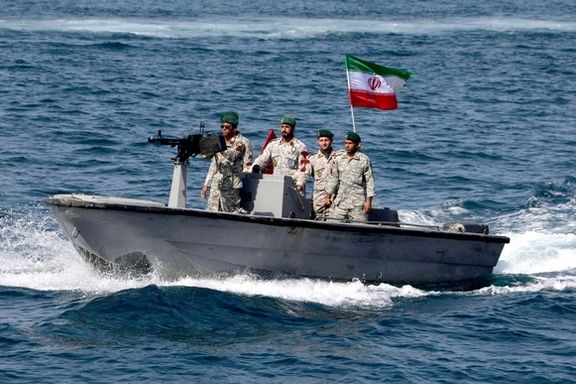
Iran's Revolutionary Guards (IRGC) have intercepted a Togo-flagged, UAE-managed products tanker carrying 1,500 tons of marine gas oil, British security firm Ambrey said on Monday.

Iran's Revolutionary Guards (IRGC) have intercepted a Togo-flagged, UAE-managed products tanker carrying 1,500 tons of marine gas oil, British security firm Ambrey said on Monday.
The vessel had loaded marine gas oil off the coast of Iraq and was destined for UAE's Sharjah when it was intercepted on Sunday 61 nautical miles southwest of Iran's port of Bushehr, Ambrey said.
Ambrey added that the incident is unlikely to be politically motivated and is not assessed as a 'war' event.
The interception was likely a counter-smuggling operation by the IRGC, as the vessel's "trading behavior was consistent with previous IRGC target profile", Ambrey said.
Iran's Revolutionary Guards' Navy confirmed seizure of the tanker in a statement quoted by Iran's state news agency, saying "the tanker was systematically engaged in fuel smuggling ... and was seized in the depths of Bushehr's coast by judicial order."
"The Betelgeuse vessel, along with its 12 crew members of Indian and Sri Lankan nationality, has been transferred to Bushehr anchorage and is under supervision," the agency quoted the statement as saying.
Iran, which has some of the world's cheapest fuel prices due to heavy subsidies and the plunge in the value of its currency, has been fighting rampant fuel smuggling by land to neighboring countries and by sea to Persian Gulf Arab states.
No further information was provided regarding the fate of the vessel.
(Reporting by Reuters)
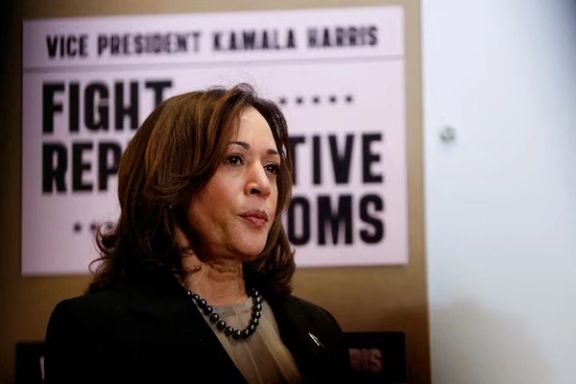
As some of the top Democrats rally behind Vice President Kamala Harris following President Joe Biden's exit from the 2024 presidential race, questions arise about how a Harris presidency would tackle the complex challenges posed by Iran.
Iran Nuclear Deal
Experts and observers have suggested that the growing threat of "weaponization" of Iran's nuclear program could be a key challenge early on for a potential Harris administration—particularly if Tehran decides to test the new US president.
With respect to the Iran nuclear deal (JCPOA), Harris is widely expected to closely follow Biden's foreign policy strategy.
When US President Donald Trump pulled out of the deal in 2018, Harris called the decision both "reckless" and that it jeopardized national security.
While acknowledging that the nuclear deal is not perfect, then-California Senator Harris asserted that it was the best available tool for the US to prevent Iran from developing nuclear weapons and to avoid military conflict in the Middle East.
When she was running for the presidency over a year later, in August 2019, Harris said that if elected, she "would plan to rejoin the JCPOA, so long as Iran also returned to verifiable compliance."
Harris has also frequently highlighted what she sees as the Obama-Biden administration's success in pushing the agreement with Iran through.
“Joe Biden actually took historic steps as Vice President to prevent Iran from obtaining a nuclear weapon. The Obama-Biden administration imposed what were described as crippling multilateral sanctions which brought Iran to negotiations, paving the way for the JCPOA and preventing a nuclear-armed Iran,” she said in 2020.
Tougher stances on Israel
While Harris is there is little doubt that she would maintain Washington's longstanding commitment to Israel’s security, it is not entirely clear whether her rhetoric will match -- should she become the 47th President.
As far back as 2016, Harris insisted that lasting peace could only take place if the Palestinians not only uphold their recognition and security guarantees to Israel, but explicitly recognize Israel as “Jewish state.”
She has shown her support of a two-state solution, and now some experts argue that her narrative and tone may shift to be outwardly more sympathetic to the plight of Palestinians and Palestinian statehood.
Aaron David Miller, a former Middle East negotiator, notes that Harris could adopt a more sympathetic tone towards Palestinian issues, although her policy actions are unlikely to deviate significantly from Biden's.
“When it comes to Israel, she has very moderate views," Miller told Reuters. "To the left of what Biden is prepared to do but way to the right of those who argue we need to impose costs and consequences on Israel to make it clear we’re the superpower and they’re not.”
Human rights and support for Iranian protestors
Regarding the Iranian state's human rights violations, particularly in response to the 2022 protests, Harris condemned the authorities' crackdowns.
"The United States continues to stand with the brave women of Iran as they protest peacefully for their fundamental rights and basic human dignity. All people in Iran must have the right to freedom of expression and assembly, and Iran must end its use of violence against its own citizens simply for exercising their fundamental freedoms," she said in a statement in 2022.
She also called for the removal of Iran from the UN Commission on the Status of Women and condemned the violent crackdown on protestors after the death in custody of Mahsa Amini over the mandatory hijab.
“Iran has demonstrated through its denial of women’s rights and brutal crackdown on its own people that it is unfit to serve on this Commission; Iran’s very presence discredits the integrity of its membership and the work to advance its mandate,” she stated in November 2022.
Regional stability and security
On regional security, Harris has shown a willingness to take a firm stance against Iran’s destabilizing activities, but her stance aligns with her party's policies without showing significant independent views.
In 2020, Harris criticized Trump for the assassination of Iranian Commander Qassem Soleimani, who headed the Islamic Revolutionary Guard's Quds Force.
She appeared to advocate for a more cautious approach when dealing with the IRGC’s proxies in the Middle East, stating in a post on X that "Soleimani was an enemy of the US, but President Trump's actions put more American lives at risk and could lead to a new war in the Middle East.”
During periods of heightened tension, she issued direct warnings to Iran, repeating Biden’s rhetoric. In a message, she issued a one-word warning to Iran regarding its potential involvement in the Israel-Gaza conflict: "Don’t," echoing Biden's earlier statement.
While Harris has garnered endorsements from notable figures, her official nomination won't occur until the Democratic National Convention in August. Meanwhile, key leaders such as former House Speaker Nancy Pelosi and former President Barack Obama have yet to publicly endorse her.

Ayatollah Mohammad-Mehdi Mirbagheri who endorsed ultra-hardliner Saeed Jalili in Iran's recent snap elections has come under attack for his extreme views. Such attacks may relate to his alleged leadership ambitions.
The controversial cleric was little known to many ordinary Iranians before Jalili’s defeat in the elections. Since then, he and his views have come to be extensively condemned by opponents, or defended by followers who claim he is being ‘vilified’.
Mirbagheri is largely seen as the successor of the late Ayatollah Mohammad-Taghi Mesbah-Yazdi, the spiritual father of Iran's ultraconservatives, whom Supreme Leader Ali Khamenei held in very high esteem.
A mid-ranking cleric who has never held any government position, Mirbagheri has been a member of the Assembly of Experts since 2016. He also sits at the helm of the Academy of Islamic Sciences of Qom which defines its mission as the development and promotion of “Islamic sciences”.
As a member of the Assembly, Mirbagheri contends that the Assembly’s role must be “supporting” the Supreme Leader, not “supervising” him as the Constitution dictates. He has always strongly supported Khamenei as the absolute authority and the Supreme Islamic Jurist (Vali-ye Faghih).
Mirbagheri teaches that fighting “infidels” and overcoming them is a prerequisite for the “emergence” of the hidden Imam, Mahdi, who the Shiittes believe has been in occultation by divine for centuries.
Using an analogy with early Islamic history, Mirbagheri also argues that the legitimacy of the Islamic ruler does not depend on the votes of the people who may choose the authority of the wrong person. Critics say this is in contradiction with the views of the founder of the Islamic Republic, Ruhollah Khomeini, who famously said that “people’s votes are the true measure.”
In a speech to commemorate the late President Ebrahim Raisi last week, Mirbagheri quoted Khomeini, as saying decades ago that the establishment of a “new culture based on Islam in the world” would entail “hardship, martyrdom, and hunger” and that Iranian people had “voluntarily chosen” to take that path.
“Our people are prepared to move towards [such] ideals,” he said in his speech in which he also accused those in favor of negotiation with the West of seeking to “integrate” Iran in the current world order and weaken it like Japan and Germany” by “accepting disarmament”.
Mirbagheri supported Jalili in the 2013 presidential elections and Ebrahim Raisi in 2017 against moderate Hassan Rouhani. He also supported the populist Mahmoud Ahmadinejad but turned his back on him when he fell from Khamenei’s favor in 2011.
Between these two elections, he did not present a politically active image but has become very vocal in the past eighteen months and active on social media.
Mirbagheri’s views about the “world order” are similar to those of Alexander Dugin, the Russian ultranationalist philosopher, who has regularly been invited to visit Iran in recent years and met with Mirbagheri and other hardliners in Qom, the bastion of ultra-hardliners.
Opponents highlight Mirbagheri’s extreme views about women’s education “in the Western style”, hijab, social freedoms, his refutation of “Western sciences” as well as his advocacy of the “clash of civilizations”.
An article Wednesday by Mehrdad Khadir, deputy editor of the reformist Ham Mihan newspaper, suggested that Jalili’ defeat has saved Iranians from the danger of domination of Mirbagheri’s extreme views.
Some hardliners who now present Mirbagheri as a danger to the foundations of the Islamic Republic’s political and religious establishment allege that his supporters have plans to pitch him as the country’s future Supreme Leader. They also warn that under his leadership religious fundamentalism and extreme anti-Western views will prevail in the Islamic Republic.
Some others allege that Mirbagheri’s vilification is another “Khamenei gambit” meant to make him and his son Mojtaba look “moderate” in comparison and to eliminate him as a leadership contender and rival to Mojtaba.
Supporters of Parliament Speaker Mohammad-Bagher Ghalibaf blamed Jalili and his political sponsors, the ultra-hardliner Paydari (Steadfastness) Party and the recently established Jebhe-ye Sobh-e Iran (MASAF), for the defeat of the ‘revolutionary front’ in the elections. They were among the first to condemn Mirbagheri and his views on social media post elections.
Paydari and MASAF members often reiterate Mirbagheri’s apocalyptic, anti-western political, and anti-modernity views in their speeches and propaganda. Members of both groups have taken over many top and sensitive positions in the government in the past few years and formed a very influential minority in the parliament.
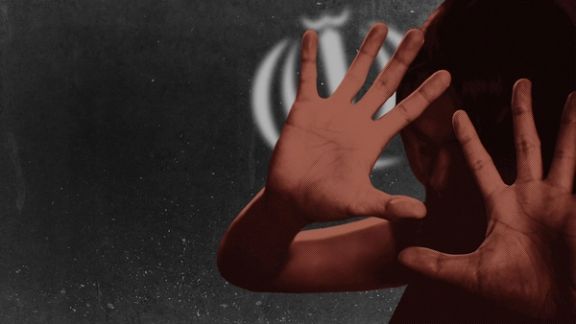
Harrowing testimonies from Iranian dissidents across multiple provinces expose the systematic and widespread weaponization of sexual violence by security forces to stifle protests in 2022, according to a year-long investigation by Iran International.
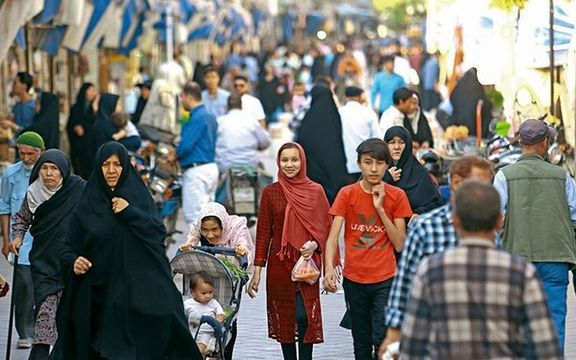
The rapid escalation of anti-Afghan sentiments in Iran in recent weeks and demands to expel millions of Afghans may be one of the most urgent problems facing the newly elected President Masoud Pezeshkian.
Some activists, politicians, and social media users in Iran warn that the unprecedented rise of such sentiments could entail serious violence against migrants and turn into a major security problem.
Mohammad-Bagher Ghalibaf, one of the six candidates in the recent snap presidential elections, promised in his campaign speeches and debates to build walls along Iran's borders with Afghanistan and Pakistan to stop the influx of migrants and to expel “all illegal immigrants”.
Pezeshkian, too, promised that his future government would block the borders to end the influx of migrants, register those who are already in Iran, and negotiate with European countries to either accept some of them as refugees or pay Iran for some of the costs for hosting them.
He argued that the West had to accept responsibility for its actions in Afghanistan which he said had caused millions of Afghans to seek refuge in Iran. “There is no reason the Iranian people must pay the costs of the wrong policies of others,” he said in a series of tweets before the elections.
Ultra-hardliner Saeed Jalili who lost the runoff vote to Pezeshkian, however, avoided taking a clear stance on the matter. Jalili’s supporters accuse Ghalibaf and his supporters of inciting “Afghan phobia”. There have been allegations that some Afghans played an active role in Jalili’s campaign and promoted him on social media.
Jalili and other ultra-hardliners largely support the policies of the late President Ebrahim Raisi’s government which was accused of supporting an “open borders” policy with a hidden agenda.
They often highlight the role of the Afghan Hazara Fatemiyoun Brigade which was organized and trained by the Revolutionary Guards (IRGC) to fight in Syria. There have been allegations that they want to bolster Iran’s military by recruiting more young Shiite Hazara Afghans.
Some critics allege that authorities under Raisi actively encouraged the growth of the Afghan population with incentives such as subsidized energy and food to remedy Iran's problem of population decline.
Those who demand the “expulsion” of Afghans accuse the government of letting them benefit from billions of dollars in food, fuel, and other subsidies. The influx of perhaps more than six million Afghans in the past three years has pushed up housing costs by increasing demand in the market, and taking jobs from Iranians.
There have also been widespread but unsubstantiated rumors that migrants are spreading various infectious diseases among Iranians including a claim refuted by health officials that leprosy is spreading in Iran due to Afghan migration.
Anti-Afghan sentiments are hugely promoted in Persian language social media with several dedicated hashtags including “Expulsion of Afghans is a national demand”.
Campaigners for the expulsion of Afghans who have also launched an online petition often highlight crimes allegedly committed by migrants including murder, rape, and child abduction.
Some campaigners for the expulsion of Afghans who also oppose the clerical rule in Iran are accused of expressing racist and ultra-nationalistic views on social media.
There have also been reports of indiscriminate aggressive behavior towards Afghans, irrespective of their residence status. There are also some reports of signs of “No Afghan entry” being displayed by real-estate agents.
A recent video clip on social media shows a young woman in a Tehran subway forcing an elderly Afghan woman to give up her seat, sparking widespread debate online.
Iranian media report that the Afghan population has overtaken Iranians in some deprived areas in and around the capital and other major cities as well as some smaller cities and towns.
Iran's Supreme National Security Council (SNSC) banned Afghans from living in 16 provinces in April 2023.
Afghans first came to Iran as refugees in the early 1980s and later as economic migrants, but their numbers rarely rose above two million before the Taliban takeover of the government in Afghanistan in 2021. Around 780,000 have refugee status and are not considered illegals.
The 2016 census found the presence of over 1.5 million Afghans in Iran. Officials admit that the number of Afghans has hugely increased since then. There are unsubstantiated claims that there may be as many as 15 million Afghans in Iran now.
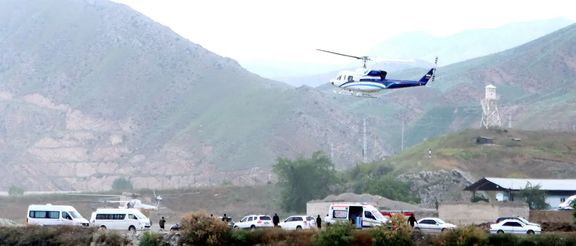
Two months after the helicopter crash that killed Iran’s late President Ebrahim Raisi, the incident remains shrouded in mystery with many unanswered questions, as the government's investigation has been non-transparent.
The Ham-Mihan newspaper in Tehran has published a report, which underscores the lingering ambiguities and the lack of a "definitive or publishable" conclusion.
“The reports are still not convincing, and the ambiguities surrounding the president's helicopter crash are met with unanswered questions from the public, which likely keeps the case open,” Mohammad Saleh Noghrekar, a lawyer and jurist, told the daily.
On May 19, a helicopter crash in northwestern instantly killed all occupants, including Raisi and his foreign minister Hossein Amir-Abdollahian. The president was returning from a visit to a dam project, with three helicopters carrying the official delegation. The two other choppers had a normal flight.
Initial investigations revealed that only 69 seconds elapsed between the last contact with the helicopter pilots and the crash, with no emergency status declared—a detail that raises more questions than it answers. It remains unclear what happened in those 69 seconds that prevented even an emergency status announcement.
The second report of the High Commission investigating the dimensions and causes of the helicopter crash noted that the weather forecast on May 19 indicated favorable weather conditions suitable for visual flight to the first and second destinations until 8:50 AM on the day of the incident. The newspaper report emphasized that the weather on the return route, based on the latest received documents and statements from the pilots and passengers of two other helicopters, requires further examination.
Adding to the controversy, Ham-Mihan mentioned rumors it could not independently confirm or deny, that according to security protocols, one or two escort helicopters should have accompanied the helicopter carrying the President. However, the helicopter carrying Raisi and his companions lacked an escort. This security mistake is considered one of the greatest blunders in recent Iranian history, the paper said.
Further complicating the narrative, the responsible authority for investigating the reasons behind the crash, ruled out "an explosion caused by sabotage during the flight and moments before the collision with the slopes" in a report issued on May 29.
The General Staff of the Armed Forces released a second report later, ruling out sabotage and confirming that no maintenance defects or violations of capacity limits were found. However, the report did little to quell the public's doubts.
Noghrekar also pointed out the outdated nature of the Bell 212 helicopter, purchased from Canada in 1994, which had been in service for more than three decades and lacked essential weather radar. This detail underscores the broader issue of Iran's aging aviation fleet, exacerbated by international sanctions that hinder the renewal of helicopters and airplanes, posing significant security risks.
"This issue has also posed numerous risks to the flight in terms of security indicators, making the flight conditions highly risky," he added.
Speculation and rumors have only intensified as official reports continue to provide inconclusive findings.
In a country already fraught with internal strife, the lack of clarity surrounding Raisi's death is particularly unsettling. The Solidarity of Iranian Republicans echoed these sentiments in a statement on May 30, highlighting the potential for “escalating mafia-like relationships” within the government if the crash was the result of an “internal conspiracy.”